Neighborly Adversaries
Neighborly Adversaries
Readings in U.S.Latin American Relations
Third Edition
Edited by Michael J. LaRosa and Frank O. Mora
Rowman & Littlefield
Lanham Boulder New York London
Published by Rowman & Littlefield
A wholly owned subsidiary of The Rowman & Littlefield Publishing Group, Inc.
4501 Forbes Boulevard, Suite 200, Lanham, Maryland 20706
www.rowman.com
Unit A, Whitacre Mews, 26-34 Stannary Street, London SE11 4AB, United Kingdom
Copyright 2015 by Rowman & Littlefield
First edition 1999. Second edition 2006.
All rights reserved . No part of this book may be reproduced in any form or by any electronic or mechanical means, including information storage and retrieval systems, without written permission from the publisher, except by a reviewer who may quote passages in a review.
British Library Cataloguing in Publication Information Available
Library of Congress Cataloging-in-Publication Data Available
ISBN 978-1-4422-2645-6 (cloth : alk. paper)
ISBN 978-1-4422-2646-3 (pbk. : alk. paper)
ISBN 978-1-4422-2647-0 (electronic)
 The paper used in this publication meets the minimum requirements of American National Standard for Information SciencesPermanence of Paper for Printed Library Materials, ANSI/NISO Z39.48-1992.
The paper used in this publication meets the minimum requirements of American National Standard for Information SciencesPermanence of Paper for Printed Library Materials, ANSI/NISO Z39.48-1992.
Printed in the United States of America
To the Memory of a Teacher, Scholar, and Mentor: Enrique A. Baloyra
Preface and Acknowledgments to the Third Edition
W e are pleased to release the third edition of Neighborly Adversaries: Readings in U.S.Latin American Relations . The first edition, published in October 1999, has been used as an accompanying text of readings for college courses in the United States that deal with Latin American politics, history, and geography/culture. The second edition, released in 2006, achieved that same purpose, and we are thankful to the professors and students who read the book and made critical comments. Many of those comments and suggestions have been incorporated in this third edition. We have also listened carefully to the scholars who reviewed the prospectus for this third edition, and their helpful critiques have made this new edition stronger. As in the first two editions, we have chosen to edit out most of the notes from the original texts; however, in some placesin order to preserve claritywe have included notes that offer important explanatory or background information.
The world has changed dramatically since 1997 when we began planning for the first edition of Neighborly Adversaries: Readings in U.S.Latin American Relations. So many new, important, and defining issues have developed over the past eighteen years, and technology has evolved mightily. In 1997, the Internet was about three years old. Twitter and Facebook had yet to be invented and cell phone communication was emerging, with many plans offering thirty minutes (per month) of talk time!
Nowadays, students have access to immediate and massive quantities of information, images, maps and videos, primary documents, books, and newspapers, all accessible from their laptop computer. Translation programs have developed, allowing students to read and understand documents written and published in languages other than their native language. Readers, such as Neighborly Adversaries , are more important than ever in this time of immediate access to information and data; our book helps students contextualize and situate the historical, cultural, and diplomatic phases that have linked the Americas since the early nineteenth century. This third edition reflects new scholarship in the field of U.S.Latin American relations and parts VI and VII are new to this edition: In part VI we focus on changes and continuities from the Clinton through Obama administrations policies toward Latin America in a new essay authored by Professor Frank O. Mora. Geographer Matthew LaFevor has authored a chapter focusing on environmental concerns that shape our common American history, and an updated essay on immigration policies carries the reader from the 1920s to 2014.
Part VII helps readers understand the centrality of cultural trends, developments, and history in the region. Thus, we have included three new chapters, authored specifically for this edition, focusing on sports in the Americas (in this case, soccer with an emphasis on Mexican soccer), contemporary communications (television), and tourism, with a focus on Peru and the Inca Trail.
The book includes a chapter that deals with FTAs (free trade agreements) in the Americas, and we have included, in the first section of the book, readings by the Cuban patriot and independence leader Jos Mart and reflections on the anti-imperialist sentiments of one of Americas most important writers, Mark Twain.
Ironically, just as this volume was going to press, Cuba re-emerged in the U.S. news cycle. On December 17, 2014, Presidents Barack Obama and Ral Castro announced, via a historic and unprecedented simultaneous television appearance from Washington and Havana, the normalization of diplomatic relations between the two nations. The two leaders sealed the deal the day before, after a lengthy telephone conversation, allowing for the United States and Latin America to embark on a new, contemporary chapter in hemispheric relations. The U.S. economic embargo against Cubadating back to 1960has negatively affected hemispheric relations, thus a new policy of dialogue and collaboration between Washington and Havana is welcome news.
This volume is interdisciplinary: readings have been purposely drawn from writers who are trained in history, political science, sociology, or environmental science. This allows for a wider interpretive framework in courses concerned with the development and evolution of U.S.Latin American relations over a long period of time.
The coeditors of this book are trained in international relations and history (LaRosa) and international relations/political science (Mora). We have a thirty-two-year collaborative relationship, dating back to our undergraduate studies at George Washington University. Our students at the University of Miami (Coral Gables), Miami-Dade Community College, Rhodes College, the National War College and Florida International University have helped us to design this book through their questions, critical comments, and reflections. Their enthusiasm and input have both encouraged and inspired us.
Many individuals helped us in preparing this third edition. At Rhodes College in Memphis we counted on financial support from the Office of the Dean of the Faculty under the direction of Michael R. Drompp. Nannette Gills and Esther N. Kerns offered administrative support. Rhodes College student Christopher Hanewald worked patiently on the project during his senior year of college: he prepared abstracts, facilitated research, helped organize the manuscript, and assisted in securing permissions. Lynn Conlee, Robert Shatzer, and Abigail Hicks assisted with design and technical aspects of the project. Timothy Garton helped with editing and research as the project neared completion. He also carefully reviewed page proofs.
In Nashville, Lance Ingwersen strengthened this third edition through careful research and editing. Professor Celso Castilho of Vanderbilt University offered advice as this project took shape. Nashville-based photographer Bill LaFevor supported the project as photo editor. At FIU in Miami, Michelle Munroe and Randy Pastrana assisted with research. Jeffrey A. Knowles compiled our index.
We are very fortunate to count on the support of Susan McEachern at Rowman & Littlefield, who has been with us since the planning stages of the first edition of Neighborly Adversaries back in 1997. She has been a wise, careful, and patient editor: Susan understands the importance of books in this new era of point and click research. We are also grateful for the editorial support of Carolyn Broadwell-Tkach.
Next page
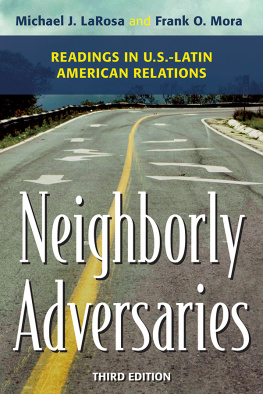
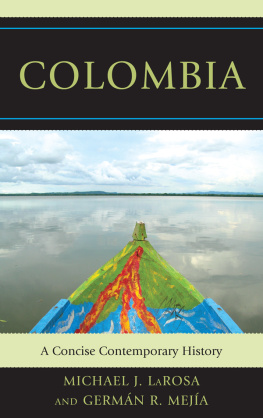
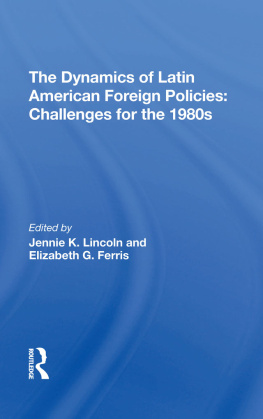
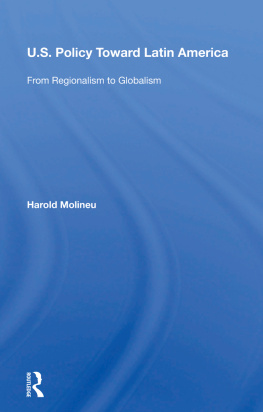
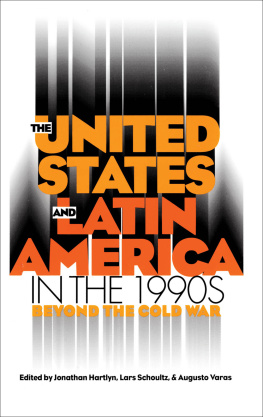
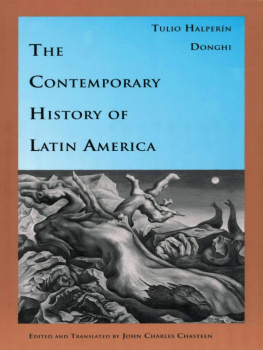

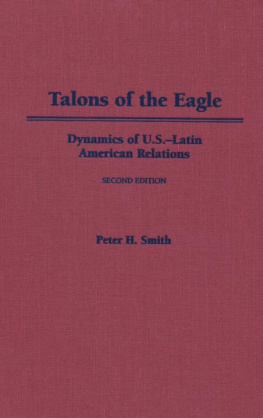
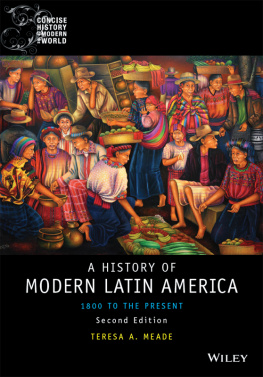
 The paper used in this publication meets the minimum requirements of American National Standard for Information SciencesPermanence of Paper for Printed Library Materials, ANSI/NISO Z39.48-1992.
The paper used in this publication meets the minimum requirements of American National Standard for Information SciencesPermanence of Paper for Printed Library Materials, ANSI/NISO Z39.48-1992.